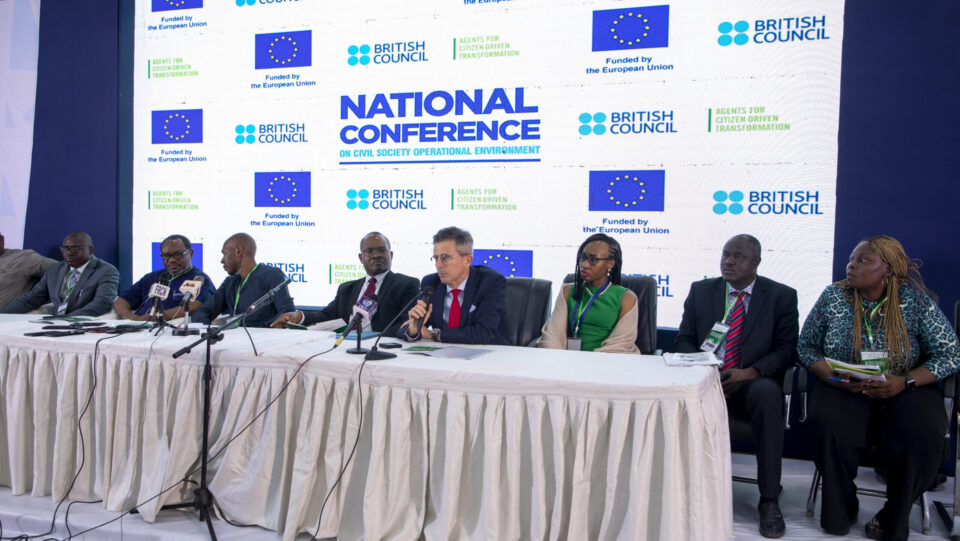By Chesa Chesa
Government agencies and Civil Society Organizations (CSOs) have been challenged to make it a policy to ensure disability and gender inclusion in all their interventions, including the development of the regulatory framework for CSO operations.
This is one of the resolutions reached in Abuja during a national conference on Civil Society Operational Environment in Nigeria hosted by the Steering Committee on Civil Society Regulatory Environment with the support of the British Council, the European Union and its Agents for Citizen-driven Transformation (ACT).
The Steering Committee has therefore been mandated to scrutinize the African Commission on Human and Peoples’ Rights’ Freedom of Association Guidelines, to measure its current adoption in Nigeria and suggest improved implementation at all levels of government.
It was further charged to mobilize relevant stakeholders to train CSOs on how to relate better with the government, and to facilitate a forum of donors and development partners for regular updates to avert violation of regulatory frameworks and duplication of initiatives.
According to a communiqué issued at the end of the three-day programme, civil society organizations were equally charged to engage with the National Assembly, Corporate Affairs Commission, the Federal Inland Revenue Service (FIRS) and other regulators on establishing clear compliance mechanisms for CSOs and NGOs.
The resolutions tasked CSOs at federal, state and local government levels to engage Ministries, Departments and Agencies towards harmonizing multiplicity of registration and taxation requirements, to avert unjust clampdown on CSOs on mere suspicion of non-compliance to certain regulatory demands, without adequate information and sensitisation.
“The donor community must deliberately support the legislative Committees on Civil Society and Development Partners to strengthen their capacities to engage with civil society and move for oversight appropriate regulatory reforms”, the communiqué added.



